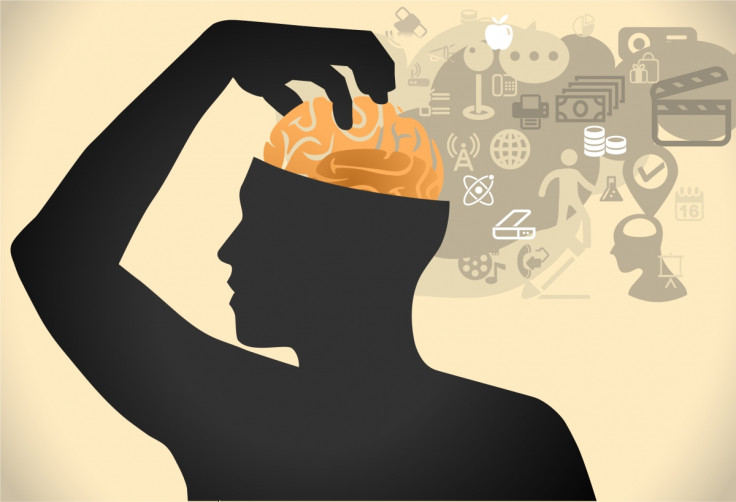World Memory Championships 2015: The secret to improving your memory is technique and self-confidence

Reliance on Google for fact-checking and finding basic information has made us forgetful, say scientists. A study has found that people view internet search engines as an extension of their own intelligence, rather than a separate tool.
Psychologists Daniel Wegner and Adrian Ward from Harvard University, highlighted a growing trend that individuals who believe their memorable facts are saved online are in fact much worse at remembering them.
"Our work suggests that we treat the internet much like a human transactive memory partner [a person we share personal details with]. We off-load memories to 'the cloud' just as readily as we would to a family member, friend or lover," they wrote in the journal Scientific American.
However, extraordinary feats of memory are celebrated at the 24<sup>th World Memory Championships held in Chengdu, China from 16-18 December. It is the most comprehensive test of competitive memory on the planet, with contestants arriving from over 50 countries, vying for £25,000 in prize money.
In China alone, more than 500 people from all over the country are hoping for a chance to represent their country at the latest memory championships, reported China News Service. Players were from a wide age range, from 9 years old to 72 years of age. The standards are high, with those participating required to memorise a sequence of 36 randomly ordered cards as well as the names and faces of 120 famous people within 15 minutes.
Attending the World Memory Championships are Tony Buzan, the inventor of Mind Maps, and also Grand Chess Master Raymond Keene OBE. They are co-founders the Mind Sport of Memory, whose aim is to promote the benefits of mental sports and mental literacy.
Training and constant practice
A link that binds all of the competitors is that none were born with particularly good memories. For all it's a skill they have developed by learning the techniques and continual practice. "I would say knowing the techniques are more than just memorising shopping lists or PIN numbers. It is about knowing your ability that you can basically memorize anything. It is about the self-confidence," Andy Fong, a Grandmaster of Memory told Memory Sports.
Dominic O'Brien has won the World Memory Championships eight times – the most in the 22-year history of the competition. He became fascinated with mnemonic techniques in 1987 when he saw Creighton Carvello memorise a pack of 52 playing cards in less than three minutes on the BBC TV show Record Breakers. O'Brien was placed in the Guinness Book of Records for his feat of committing to memory a random sequence of 2,808 playing cards (54 packs) after looking at each card only once. He made just eight errors.
"I believe that the vast majority of people are born with a powerful memory. It just takes inspiration, dedication and application of the correct systems to realise this potential," O'Brien, head of ethics at the World Memory Championships told IBTimes UK.
"Memory as mental sport is growing exponentially. It became a dying art after the Greeks and Romans – when paper was invented – and then finally with the advent of the printing press. We are now seeing a renaissance on the art and science of memory.
"We are the sum total of our experiences, therefore our memories. Without memory our lives would be in chaos."
10 different disciplines at the World Memory Championships
1 Spoken numbers
2 Playing cards
3 Historic/future dates
4 Binary numbers
5 Random words
6 Abstract images
7 Names and Faces (15 minutes allowed. World record: 164 names)
8 Random numbers
9 Speed numbers
10 Speed cards (Memorise the order of one shuffled deck of 52 playing cards. World record: 21.19 seconds)
Hyperthymesia
Highly Superior Autobiographical Memory (HSAM) also known as piking or hyperthymestic syndrome, is a condition in which an individual possesses a superior autobiographical memory, meaning he or she can recall the vast majority of personal experiences and events in his or her life.
Rebecca Sharrock is one of just 80 people worldwide who have been identified as having HSAM. She can remember almost every single detail of her life – and recite all the Harry Potter books word-for-word.
There is a clear a distinction between those who have hyperthymesia and others with exceptional memory – those using mnemonic or similar rehearsal strategies to memorise long strings of subjective information. Memories recalled by hyperthymestic individuals tend to be personal, autobiographical accounts of both significant and mundane events in their lives. This extensive and highly unusual memory does not derive from the use of mnemonic strategies. Hyperthymestic recall tends to be constrained to a person's lifetime and is believed to be an unconscious process.
© Copyright IBTimes 2025. All rights reserved.






















